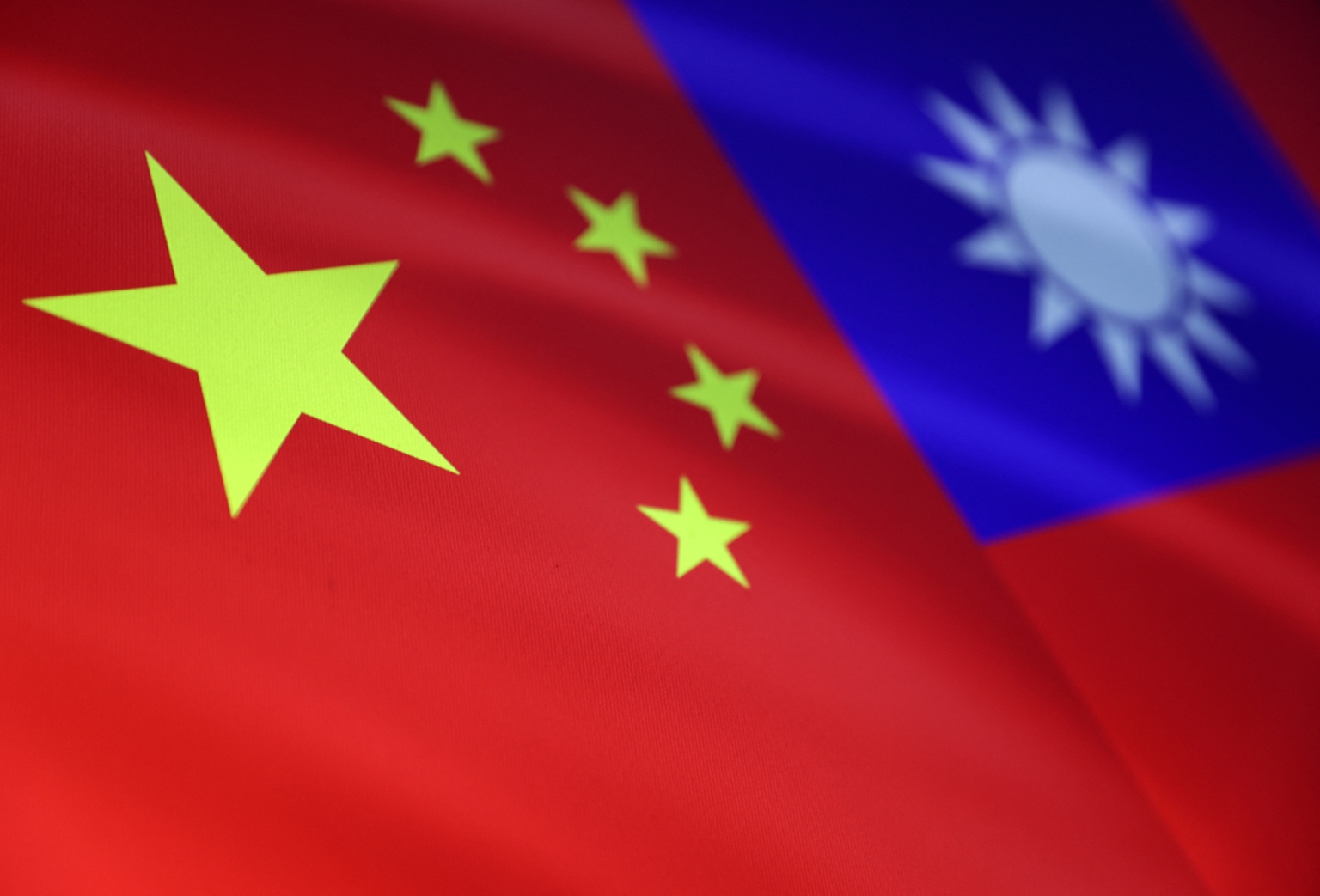China sanctions seven Taiwanese officials for 'diehard' support of independence
Sign up now: Get insights on Asia's fast-moving developments

The individuals' actions seeking Taiwan's independence constitute the biggest obstacle to China's reunification.
PHOTO: REUTERS
BEIJING (REUTERS) - China has sanctioned seven Taiwanese officials for supporting Taiwan independence, its state media reported on Tuesday (Aug 16).
The sanctions come after US House of Representatives Speaker Nancy Pelosi visited Taiwan earlier this month, a move that China said had sent a wrong signal to pro-independence forces on the island.
Taiwan’s Foreign Ministry said on Tuesday it could not accept threats. Democratically self-ruled Taiwan rejects China’s claim of sovereignty.
Taiwan’s Foreign Ministry said on Tuesday it could not accept threats. Democratically self-ruled Taiwan rejects China’s claim of sovereignty.
State news agency Xinhua said among those sanctioned by China's Taiwan Affairs Office are Ms Hsiao Bi-khim, the de facto Taiwan ambassador to Washington, and Mr Wellington Koo, Secretary-General of Taiwan's National Security Council.
The Beijing-based office said the seven officials will be listed as diehard "Taiwan independence" separatists, with "punitive measures" imposed on them. It added that Taiwan Premier Su Tseng-chang, parliament speaker You Si-kun and foreign minister Joseph Wu were already on the list and warned that more may be added.
Politicians from Taiwan’s ruling political party, Democratic Progressive Party were also sanctioned.
Those sanctioned and their immediate family members are banned from entering the Chinese mainland and the special administrative regions of Hong Kong and Macau. They will also be prohibited from engaging in "profit-making activities" on the mainland.
The office said the individuals' actions seeking Taiwan's independence constitute the biggest obstacle to China's reunification and a "grave danger to the national rejuvenation".
It said the individuals went "out of their own interests" to "collude with external forces in provocations" that undermined the peace and stability of the region, actions that became "more egregious" during the visit of Mrs Pelosi earlier this month.
Taiwan’s foreign ministry said the island was a democracy that “could not be interfered with by China”, while Taiwan’s China-policy making Mainland Affairs Council said Beijing was trying to “create antagonism and anxiety”.
“Even more, we cannot accept threats and menace from authoritarian and totalitarian systems,” ministry spokesperson Joanne Ou told reporters in Taipei.
DPP deputy secretary general Lin Fei-fan said it was an honour to be added to the sanctions list.
“I think that in this era, being sanctioned by an authoritarian regime should be a decoration for members of the free world, and it is very glorious,” he wrote on his Facebook page.
The sanctions will have little practical impact as senior Taiwanese officials do not visit China.
“I think that in this era, being sanctioned by an authoritarian regime should be a decoration for members of the free world, and it is very glorious,” he wrote on his Facebook page.
The sanctions will have little practical impact as senior Taiwanese officials do not visit China.
Taiwan’s government says only the island’s 23 million people have the right to decide their own future.
Separately, Taiwan President Tsai Ing-wen said peace and stability in the Taiwan Strait is critical to the stability of the global supply chain of high-tech products. She was speaking to a Japanese publication, in comments published by her office on Tuesday.
Taiwan is a major producer of semiconductors.


